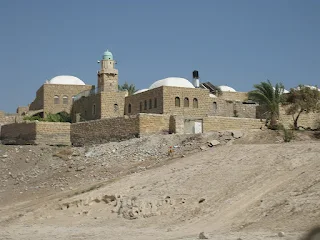Title: The Prophet: Hazrat Musa Genre: Historical Drama, Religious Epic Synopsis: "The Prophet: Hazrat Musa" unfolds as a timeless tale of faith, courage, and divine intervention, bringing to life the remarkable journey of one of the most revered figures in Abrahamic tradition. Set against the backdrop of ancient Egypt, the film follows the extraordinary life of Prophet Musa (Moses) as he emerges as a beacon of hope for the oppressed Israelites and a formidable adversary to the tyrannical Pharaoh. Through breathtaking cinematography and powerful performances, viewers are transported to a world of opulence and oppression, where the Israelites endure slavery and persecution under the rule of the Pharaoh. Amidst this turmoil, Musa is born and destined for greatness, his life marked by divine miracles and a steadfast commitment to justice and liberation. As the narrative unfolds, audiences witness Musa's dramatic journey from the splendor of Pharaoh's court to the wilderness of Sinai, where he receives the divine revelation and embarks on a mission to lead his people to freedom. Along the way, he confronts the wrath of Pharaoh, navigates treacherous terrain, and grapples with doubts and challenges that test his faith and resolve. With each miraculous event and divine intervention, "The Prophet: Hazrat Musa" captures the essence of Musa's unwavering faith and his unyielding dedication to fulfilling the divine mandate entrusted to him. From the parting of the Red Sea to the revelation of the Ten Commandments, the film brings to life the iconic moments that have inspired believers for millennia. Through its compelling storytelling and timeless themes, "The Prophet: Hazrat Musa" transcends cultural and religious boundaries, offering a universal message of hope, redemption, and the triumph of good over evil. As Musa's journey unfolds, viewers are invited to reflect on the enduring lessons of compassion, justice, and spiritual liberation that continue to resonate in today's world. Prepare to be captivated by the awe-inspiring spectacle and profound spirituality of "The Prophet: Hazrat Musa," a cinematic masterpiece that celebrates the enduring legacy of one of history's greatest prophets and his timeless message of faith and freedom.
Nabi Musa (Arabic: ٱلنَّبِي مُوْسَى, romanized: An-Nabī Mūsā, lit. 'the Prophet Moses', also transliterated as Nebi Musa) is primarily a Muslim holy site near Jericho in Palestine, where a local Muslim tradition places the tomb of Moses (called Musa in Islam). The compound is centered on a mosque which contains the alleged tomb. It used to be the site of an eponymous seven-day-long religious festival that was celebrated annually by Palestinian Muslims, beginning on the Friday before Good Friday in the Orthodox calendar used by the Greek Orthodox Church of Jerusalem.[4] Considered in the political context of 1920 as "the most important Muslim pilgrimage in Palestine",[5] the festival was built around a collective pilgrimage from Jerusalem to what was understood to be the Tomb of Moses. A great building with multiple domes marks the mausoleum of Moses.
Nabi Musa is also a Palestinian administrative territorial unit in the Jericho Governorate on the West Bank, with an area of c. 113 km2 and situated south of Jericho, in which 66 Palestinian households were counted in 2007, a population defined in 2012 as "nomads"[7][8][9] (see West Bank Bedouin). By 2017, Nabi Musa district had a population of 343 residents.
 |
| The maqam of Nabi Musa |

0 Comments